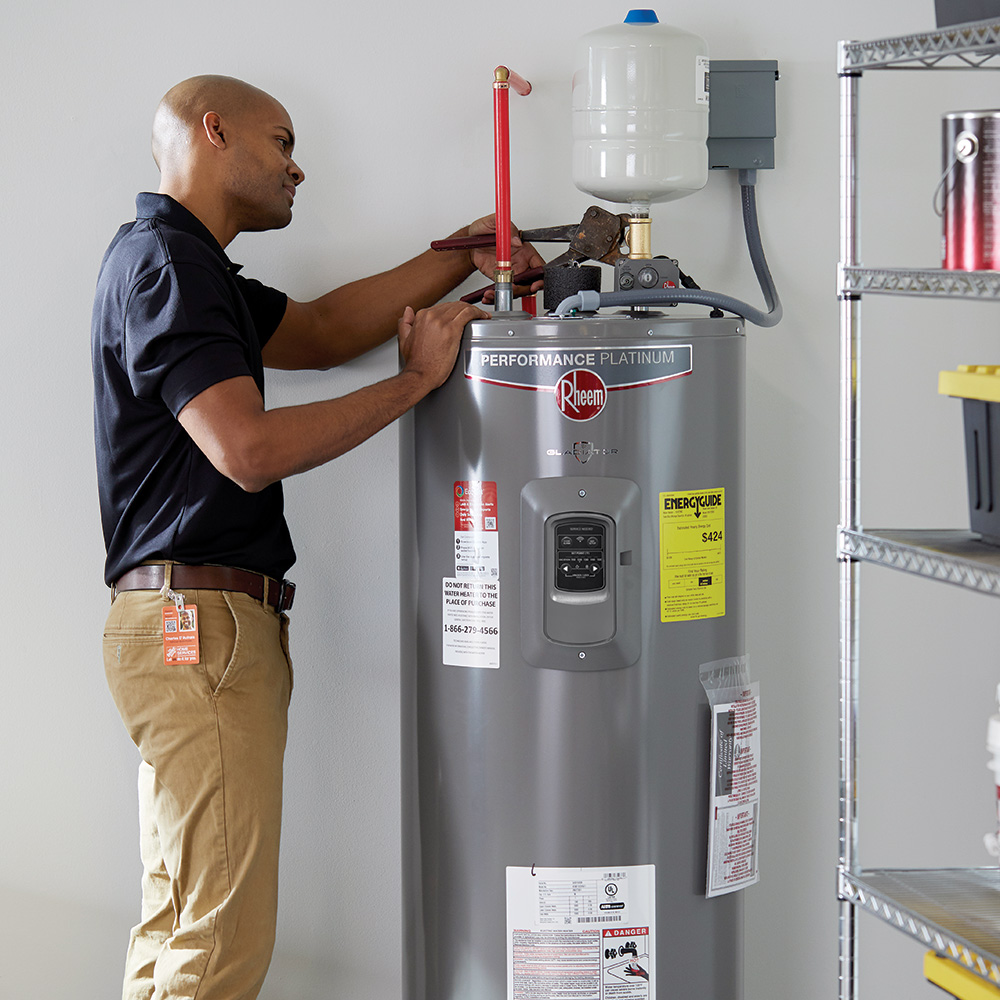Identifying And Solving Common Heater Issues
Identifying And Solving Common Heater Issues
Blog Article
Everybody may have his or her own way of thinking on the subject of Water Heaters Problems.

Picture beginning your day without your regular hot shower. That already establishes a poor tone for the rest of your day.
Every home requires a reliable water heater, however just a few understand how to handle one. One simple means to maintain your hot water heater in leading shape is to look for faults frequently and fix them as quickly as they appear.
Remember to switch off your water heater before sniffing about for faults. These are the water heater faults you are probably to run into.
Water too warm or too cold
Every hot water heater has a thermostat that identifies how warm the water obtains. If the water coming into your home is also hot regardless of establishing a practical optimum temperature level, your thermostat might be damaged.
On the other hand, as well cold water may be because of a stopped working thermostat, a busted circuit, or inappropriate gas circulation. For instance, if you utilize a gas water heater with a busted pilot burner, you would certainly obtain cold water, even if the thermostat is in ideal problem. For electric heaters, a blown fuse may be the culprit.
Not nearly enough hot water
Hot water heater can be found in several dimensions, relying on your warm water demands. If you lack hot water before every person has actually had a bath, your water heater is also small for your family size. You need to think about installing a bigger water heater tank or going with a tankless hot water heater, which takes up much less room and also is a lot more long lasting.
Unusual sounds
There are at least five type of noises you can learn through a hot water heater, yet the most typical interpretation is that it's time for the water heater to retire.
To start with, you should know with the normal seems a water heater makes. An electric heater may appear various from a gas-powered one.
Popping or banging noises generally mean there is a slab of debris in your containers, and also it's time to clean it out. On the other hand, whistling or hissing sounds may just be your valves letting some pressure off.
Water leakages
Leakages can come from pipes, water connections, valves, or in the worst-case scenario, the tank itself. With time, water will certainly corrode the container, and also discover its way out. If this happens, you require to replace your hot water heater asap.
Nevertheless, before your adjustment your entire storage tank, be sure that all pipelines are in area and that each valve functions perfectly. If you still require assistance recognizing a leak, call your plumber.
Rust-colored water
Rust-colored water suggests one of your hot water heater elements is corroded. It could be the anode pole, or the tank itself. Your plumber will have the ability to recognize which it is.
Warm water
Despite exactly how high you set the thermostat, you will not get any kind of hot water out of a heating system well past its prime. A water heater's performance might decrease with time.
You will additionally obtain warm water if your pipelines have a cross connection. This suggests that when you activate a faucet, warm water from the heater streams in along with regular, cold water. A cross connection is simple to area. If your hot water taps still follow closing the hot water heater shutoffs, you have a cross connection.
Discoloured Water
Corrosion is a significant cause of unclean or discoloured water. Rust within the water container or a falling short anode pole can create this discolouration. The anode rod protects the storage tank from rusting on the within and need to be examined annual. Without a pole or an effectively functioning anode rod, the hot water quickly wears away inside the container. Get in touch with an expert water heater technician to establish if replacing the anode pole will take care of the problem; otherwise, change your hot water heater.
Final thought
Ideally, your water heater can last 10 years before you need a change. Nevertheless, after the 10-year mark, you might experience any one of these mistakes a lot more routinely. At this point, you ought to add a new water heater to your budget.
How To Troubleshoot 3 Common Water Heater Problems in Twin Cities
The Water Heater Is Leaking
A leaky cold water inlet valve A loose pipe fitting A leaky temperature and pressure relief valve A corroded anode rod A cracked tank Turn Off Your Water Heater:
Shut off your gas water heater by turning the gas valve on the unit to the “OFF” position. Shut off your electric water by switching its power off at your electrical panel. Look for a two-pole breaker labeled “water heater” and turn it to the “OFF” position. Move the ball valve connected to the water heater to be perpendicular to the piping at a 90° angle. Look for the Leak:
Depending on whether the water is coming from the tank's top or bottom, you’ll want to look for the leak in different locations.
If the leak comes from the top of the tank, carefully look for water escaping from the cold water inlet valve or loose pipe fittings. Rusted hot and cold water valves can have loose connections with the tank, with water leaking out of them.
https://mspplumbingheatingair.com/blog/how-to-troubleshoot-3-common-water-heater-problems
I discovered that article on Common Problems with Your Home Water Heater while scouting around the search engines. Make sure you take a moment to promote this write-up if you appreciated it. I love reading our article about Common Problems with Your Home Water Heater.
Premium plumbing emergency care here. Report this page